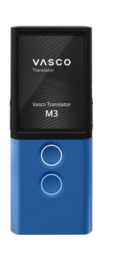23 min read
Nestled in the misty hills of Ireland and the rugged coasts of the Isle of Man, the Celtic languages evoke ancient myths, epic sagas, and resilient cultures that have endured centuries of change. Actually, they were once spoken widely across much of Western and Central Europe. Today, the Celtic languages survive mainly on the northwestern…
Languages
Language Facts for Everyone
As we are in the “Language” category, let’s talk about some interesting language trivia. But even before that, let’s learn some basic facts about language to have a full grasp on the subject. A language is a system of communication that allows people to express themselves and understand one another.
Trivia about language etymology
The word ‘language’ is derived from the Latin word “lingua”, which means tongue. The interesting trivia about language is that until the 17th century, it wasn’t used to refer to a system of communication.
Facts about language categorization
Nowadays, the language is considered as one of the following:
-
- A living natural language (such as English)
- A dead natural language (such as Latin)
- A constructed language (such as Esperanto)
- A dialect continuum (such as the Scandinavian languages)
- Code used for communication between computers, such as Morse code or binary
- One of the most interesting language facts is that languages don’t have to be the real historical ones to be popular and alive… we’re talking of course about fictional languages.
Fictional Languages
Fictional languages are the ones that are created for the sake of the artistic work. They have a lot of uses in the world of storytelling, such as to create an exotic feel and to provide a sense of depth to the universe. There is a lot of interesting language trivia about such languages. Let’s focus on the most popular ones.
Fictional Languages Facts: Categories
There are many different types of fictional languages, and they can be broadly classified into three categories: constructed, naturalistic, and engineered. Fun language facts about it is that they are made up entirely by their creators and don’t exist anywhere in nature. These types of languages usually involve a lot of thought put into their structure, grammar, vocabulary and culture.
Naturalistic languages on the other hand are based on real-world language structures but with added elements or influences from other cultures or places. The fun language trivia about that is that these types of fictional language can be found in various forms, like Tolkien’s Elvish or George R. R. Martin’s Dothraki language for example. Engineered languages on the other hand are based on real-world language structures. Fun trivia about language of this type is that it has elements or influences from other cultures
How to Say Thank You in Different Languages: A Complete Guide
25 min read
There’s something magical about expressing gratitude in someone’s native language. That’s why knowing how to say “thank you” can transform a mundane exchange into a meaningful moment of human connection. “Thank you” is often one of the first phrases travelers learn—and for a good reason. It’s short, universally appreciated, and incredibly powerful. These two simple…
Languages of Star Trek: Klingon vs. Vulcan
11 min read
What alien tongues teach us about understanding one another and how modern tech brings that fantasy to life? “To boldly go where no one has gone before” — that’s the mission of the USS Enterprise. But between interstellar exploration and alien diplomacy, one thing remains constant: language. In the world of Star Trek, languages aren’t…
Catalan vs Spanish: Understanding Two Distinct Languages
16 min read
If you’ve ever wondered about the languages spoken in Spain, you might be surprised to learn that Spanish isn’t the only official one in the country. Catalan, a vibrant and widely-spoken tongue, plays a significant role in several Spanish regions. But what is Catalan language and what is the difference between Catalan and Spanish? Many…
Arabic Language Explained: History, Countries, and Interesting Facts
14 min read
It’s written from right to left, has no capital letters, and its flowing script looks more like an intricate work of art than a mere alphabet. Arabic is elegant, mysterious, and steeped in centuries of culture. But this language is much more than just a beautiful script. It’s one of the oldest and most widely…
Top Japanese Translation Tips for Multiple Languages
7 min read
“すみません、英語を話せますか?” If those characters look like an elaborate code rather than a simple question asking if someone speaks English, you’re not alone. Japanese operates on fundamentally different principles from most Western and even many Asian languages. It’s like Japanese took its own evolutionary path while other languages developed in different directions. This created some of…
The Best Ways to Translate to Spanish
7 min read
Got a Mexican pen pal waiting for your reply? Planning a trip to Barcelona but can’t tell “gracias” from “de nada”? Or maybe you need to translate business documents for your growing Latin American market? Whatever your reason to translate to Spanish, you’ve got more options today than ever before. Spanish ranks among the world’s…
Quick and Accurate Ways to Translate to German
7 min read
Ever found yourself staring blankly at a German menu, hoping the waiter doesn’t notice your confusion? Or perhaps you’ve received an important email from a business partner and need to translate to German ASAP? You’re not alone. German language might sound intimidating with its seemingly endless compound words and unique grammar rules, but finding a…
The Complete Guide to Free Translator Apps in 2025
9 min read
To experience world without language barriers, there is an increasing need for high-quality translation. Traditionally, experienced translators were hired to produce content in foreign languages. However, using a translator app can offer a quicker and cheaper experience for private users and businesses alike. But with so many apps available, what is the best translator…
Essential Guide to Germanic Languages: History, Variants, and Impact
8 min read
The Germanic languages are a diverse and complex language family that has played a significant role in shaping the linguistic landscape of Europe and beyond. From the ancient Proto-Germanic language to modern-day English, German, and Dutch, the Germanic languages have a rich history and cultural significance that continues to influence the world today. In this…
CHOOSE THE RIGHT TRANSLATOR FOR YOU

Vasco Translator V4
Universal translator with 108 languages and free lifetime connectivity

Vasco Translator M3
Pocket Translator with free lifetime connectivity









